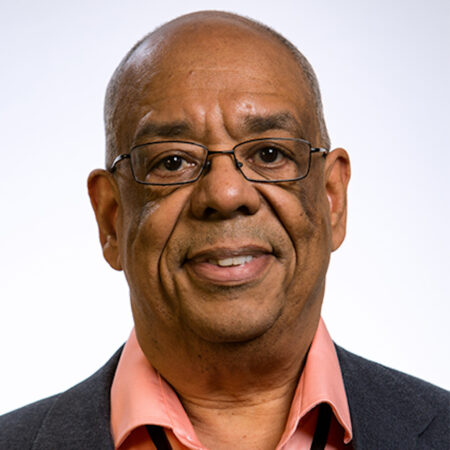Roscoe Giles, PhD

Roscoe Giles is an American physicist and computer engineer, and is the deputy director of Boston University’s Center for Computational Science.
Roscoe Giles was born and raised in California and Illinois. He obtained his B.A. degree in physics at the University of Chicago, and then his M.S. and Ph.D. degrees in physics from Stanford University in 1973 and 1975. Roscoe was the first African American to earn his Ph.D. degree in physics from Stanford University.
Roscoe worked as a research associate at Stanford Linear Accelerator Center (SLAC) until moving to the Center for Theoretical Physics at Massachusetts Institute of Technology (MIT) in 1976. In 1979, he became an assistant professor of physics at MIT then moved to Boston University as an associate professor of electrical and computer engineering in 1985. In 1992, Roscoe was named Boston University Scholar-Teacher of the Year and he became the deputy director of the Boston University Center for Computational Science. In 1999, Roscoe was promoted as a full professor to the department of electrical and computer engineering at Boston University. His research focuses on distributed and parallel computer and supercomputer applications, simulations of large scale molecular systems, advanced computer architectures, computational science, and micromagnetics.
Other activities include co-directing the Metacenter-Affiliated Resource in the New England Region (MARINER) project, serving as team leader for the Education Outreach and Training Partnership for Advanced Computational Infrastructure (EOT-PACI), and co-chairing the Education Program for the Supercomputing 1997 Conference. He was also the first ever African American conference chairman of the Supercomputing Conference (Baltimore, MD in 2002) and became the chair of the United States Department of Energy’s Advanced Scientific Computing Advisory Committee (ASCAC) in 2010. Roscoe also founded and is the executive director of the Institute for African American eCulture which fights hi-tech inequality.